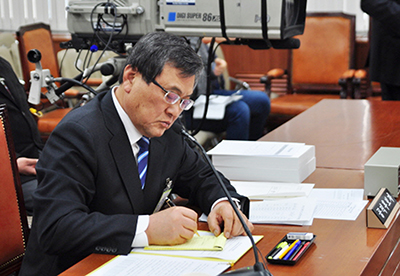On March 14, Professor Mun Kee Choi from the Department of Management Science was nominated as Minister of the Ministry of Science, ICT and Future Planning under the newly launched Geun-hye Park administration, whose goal is to open a new era of hope and happiness for all people. He is to replace Jeong Hoon Kim, who withdrew his candidacy as concerns arose regarding his relationship with the Central Intelligence Agency.

Chang-jun Yoon, President Park’s chief spokesman, commented that the appointment was based on Professor Choi’s expertise in information and communications technology (ICT). The science and technology community seemed to approve of the nomination. Jung-sun Seol, Vice President of Korea Telecommunications Operators Association (KTOA), said, “Nominee Choi will be able to carry out his duties as minister successfully and fulfill the department’s goal of integrating science and technology with ICT.”
Professor Choi received his bachelor’s degree in applied mathematics at Seoul National University, a master’s degree in industrial engineering at KAIST, and a Ph. D. in operations research at North Carolina State University. He served as President of Electronics and Telecommunications Research Institute and as the non-executive director at Korea Institute for Advancement of Technology. In regards to national affairs, Professor Choi had participated in developing ICT-related policies under President Geun-hye Park’s Public Happiness Promotion Committee during the last presidential election.
In the interview held right after the nomination, Professor Choi said, “I will put top priority on creating new jobs based on science and technology, considering that ‘creative economy’ is the slogan of the new administration.” On April 1, during the confirmation hearing, he promised to change the current economy into a “leading economy” through groundbreaking changes. In addition, he shared his plans to expand the portion of basic research in research and development up to 40 percent by 2017, to accelerate technical development in Korean models of space rockets and lunar modules, to supply Internet service that is 10 times faster, and to improve network systems through reasonable spectrum policy.

